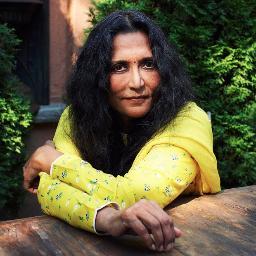CAMBRIDGE, MA–The Harvard South Asia Institute is hosting its Annual Symposium on May 5 and 6 on the theme of democracy across South Asia. It will feature discussion with speakers such as Deepa Mehta, Lawrence Lessig, Michael Sandel, and Veena Das. It is free and open to the public.
The two-day symposiums will be held on May 5 and 6 in Thompson Room, Barker Center, 12 Quincy St, Cambridge, MA.
The South Asia Institute’s fifth Annual Symposium will feature discussions on the idea of democracy and practice throughout South Asia. Given the promise and peril democracy has had in various parts of the region, this event will bring together scholars and practitioners to discuss this important and timely topic.
Here is the program:
Thursday, May 5
4:30 – 5 pm Tea Reception
5 – 6:30 pm Panel 1
Deepa Mehta, Screenwriter, Director, and Producer
Adil Najam, Dean, Frederick S. Pardee School of Global Studies, Boston University
Michael Sandel, Anne T and Robert M Bass Professor of Government, Harvard University
Facilitator: Homi Bhabha, Anne F. Rothenberg Professor of English and American Literature and Language, and the Director of the Mahindra Humanities Center at Harvard University
Friday, May 6
8:30 – 9 am Registration and Breakfast
9 – 10:30 am Panel 2
Lawrence Lessig, Roy L. Furman Professor of Law and Leadership, Harvard Law School
Sonali Samarasinghe, Editor-in-Chief, The Lanka Standard
Aqil Shah, Wick Cary Assistant Professor of South Asian Politics in the College of International Studies at the University of Oklahoma; Non-resident scholar at the Carnegie Endowment for International Peace
Salil Tripathi, Contributing Editor at Mint and Caravan; Chair, PEN International’s Writers in Prison Committee; Author, The Colonel Who Would Not Repent: The Bangladesh War and its Unquiet Legacy
Facilitator: Ashutosh Varshney, Sol Goldman Professor of International Studies and the Social Sciences, Brown University
It is well known in political theory and analysis that democracy is not only about holding free and fair elections, but also about ensuring the basic liberal freedoms between elections: freedom of expression, freedom of religious practice, freedom of association etc. This distinction is known in theory as the distinction between the electoral and liberal aspects of democracy. While we can’t have democracy without elections, democracy is not simply about holding elections.
In South Asia, elections might have become a regular feature of most polities, but is it that the provision of liberal freedoms has lagged behind the electoral aspects of democratic functioning? Why might that be so? Are both aspects of democracy by any chance in danger?
10:30-11 am Break
11 – 12:30 pm Panel 3
Partha Chatterjee, Professor, Anthropology and Middle Eastern, South Asian, and African Studies, Columbia University
Menaka Guruswamy, Visiting Lecturer in Law and Peter and Patricia Gruber Fellow in Global Justice, Yale Law School
Hitesh Hathi, Executive Producer, Radio Boston, WBUR
Mubbashir Rizvi, Assistant Professor of Cultural Anthropology, Georgetown University
Tunku Varadarajan, Virginia Hobbs Carpenter Research Fellow at Stanford University’s Hoover Institution
Facilitator: Veena Das, Krieger-Eisenhower Professor of Anthropology, Johns Hopkins University
This panel will think of the experiences of the different countries in South Asia in relational terms with regard to two issues. First, what can we learn about the management of religious differences and rights of minorities in the way governance, popular politics, and historical memories impact on these issues. Second, how have these polities responded to the challenges posed by the material conditions in which the poor live with regard to such needs as housing, basic infrastructure, health and aspirations for better futures?
These questions are not posed in terms of comparisons since the processes in one country are deeply influenced by regional politics and transnational processes within the region. The question then is what are the connections between the countries in South Asia and in what ways might we think of new paradigms to address these connections? What are the obstacles – internal and external – to the realization of the goals of creating multiethnic or multi-religious polities? What would it take to sustain and strengthen democracy and how can democratic processes be made responsive to the rights of minorities, or the needs of the poor? How do we think of democracy and forms of governance both above the level of the nation and below the level of the nation? What are the major threats to democratic aspirations and what are the new opportunities?














